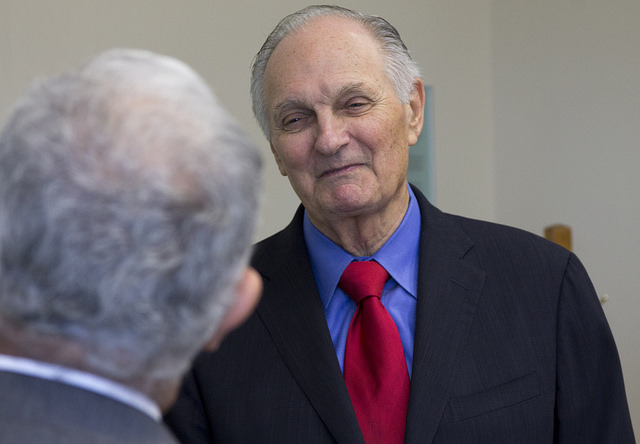The University is working to bridge the communication gap between the scientific community and the general public.
Beginning this month, the Center for Health Communication at the Moody College of Communication and the Dell Medical School are partnering with the Alan Alda Center for Communicating Science at SUNY Stony Brook to equip scientists and health care providers to be better communicators.
“Research has shown there are gaps between what scientists know and what the public understands,” said Jay Bernhardt, interim dean of Moody College. “This partnership [aims] to help close those gaps by improving how scientists communicate and also making information more understandable and more accessible to the public.”
Over the next several months, Moody College, Dell Medical School and Alda Center will meet to discuss the partnership strategy, Bernhardt said. Details are not yet available, but plans would include trainings, workshops, research projects and outreach programs, according to Bernhardt.
Sue Cox, executive vice dean for academics and chair of medical education at Dell Medical School, said the partnership will give medical faculty and students access to Alda Center’s expertise and resources on health communication.
“There are a number of very creative teaching methods [Alda Center] has pioneered,” Cox said. “Medical students should never stop learning ways to communicate better — even after they become doctors. That’s why we want to fully integrate the teaching of communication skills through the curriculum.”
Evonne Kaplan-Liss, Alda Center medical program director, said the center’s goal is to incorporate communication curriculum for health professions and STEM graduate programs through affiliations.
“There are two foundations for the curriculum — improvisation and distilling message,” Kaplan-Liss said. “Improvisation means improving nonverbal communication to engage more with the audience, while distilling message is about the language — avoiding jargons, ordering information — bottom line first then details — and using analogy.”
Corporate communication junior JoBeth Hanak, who is taking a course on interpersonal health communication, said stigma often stands in the way of effective doctor-patient communication.
“It doesn’t matter if someone has an illness and is prescribed a medication if there is a stigma for taking medication at work,” Hanak said. “If [patients] feel uncomfortable abiding by their medication schedule in public, they may miss doses and suffer health consequences.”
Anthony Dudo, affiliate faculty member at the Moody Center and assistant professor in advertising and public relations, said experts are currently discussing how and why scientists choose to engage — or avoid engaging — with the public and are also researching the ways scientists communicate with non-experts through social media.
“Most scientists lack a strong communicative vehicle to present findings, news and general opinion,” said Emma Chase, a recent graduate who took Dudo’s senior honors course last year. “Whether that’s a lack of science journalists or simply their own lack of communication skills, there simply aren’t enough bridges from scientists to the public ear.”
As part of the affiliation, Bernhardt said, Moody College hopes to work with STEM and health sciences scientists and communication professionals across campus to improve communication and practices.





















